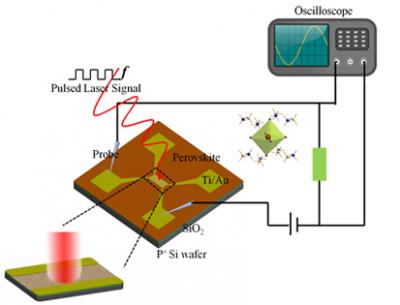The efficiency potential for perovskite materials in solar is well known, and researchers the world over are working on a plethora of different methods to improve their stability and create solar cells able to stand up to field conditions for longer periods of time.
Researchers from two Chinese Universities – Liaocheng University and Hefei University of Technology – noted that solvent based processes, the most common method for growing perovskite crystals on a substrate, often leads to defects and irregularities in the perovskite film, making it extremely sensitive to moisture and likely to decompose quickly under working conditions.
The researchers then suggested an alternative to using solvents, working on a gas-solid reaction process. Further details of the process itself were not provided, however the team states that crystals grown this way, and annealed at 120∘C for 30 minutes exhibited higher responsivity and detectivity than devices previously developed using solution based methods.
Popular content
The paper, published in the journal, Nano, showed that the gas-solid method gave full coverage with a high rate of crystallization, as well as good stability after storage in air for two months.
This content is protected by copyright and may not be reused. If you want to cooperate with us and would like to reuse some of our content, please contact: editors@pv-magazine.com.



By submitting this form you agree to pv magazine using your data for the purposes of publishing your comment.
Your personal data will only be disclosed or otherwise transmitted to third parties for the purposes of spam filtering or if this is necessary for technical maintenance of the website. Any other transfer to third parties will not take place unless this is justified on the basis of applicable data protection regulations or if pv magazine is legally obliged to do so.
You may revoke this consent at any time with effect for the future, in which case your personal data will be deleted immediately. Otherwise, your data will be deleted if pv magazine has processed your request or the purpose of data storage is fulfilled.
Further information on data privacy can be found in our Data Protection Policy.